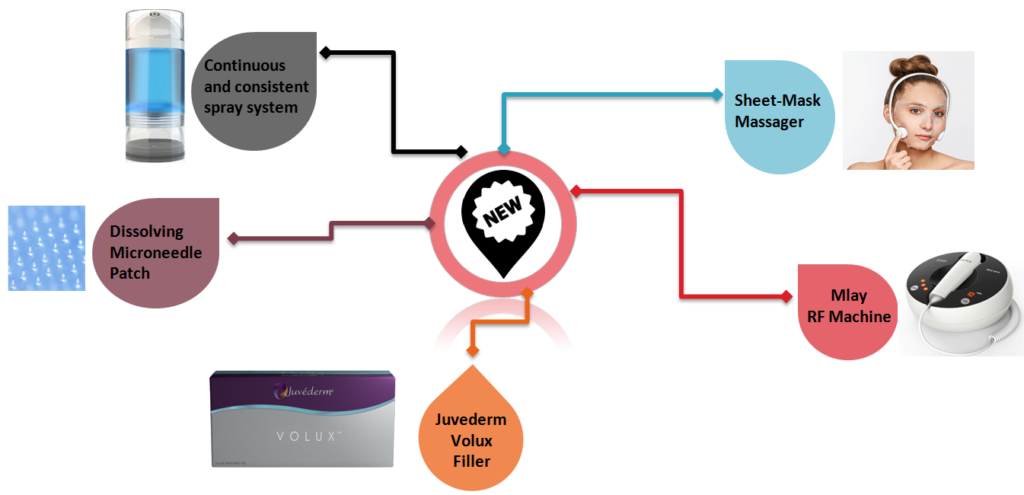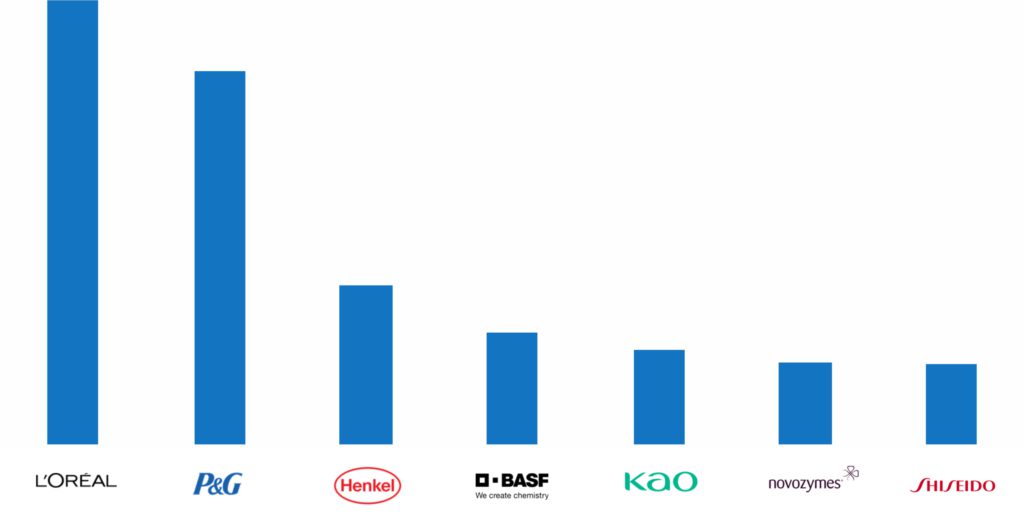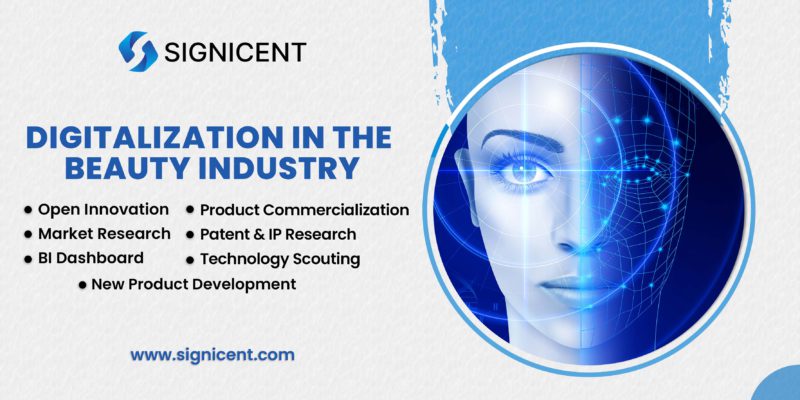Note: The free primer on digitalization in the beauty industry report can be requested from here.
Artificial Intelligence (AI) and Machine learning help assess bulks of information to draw meaningful conclusions and suggest or make preferences most relevant to the end-user. Digitalization in the beauty industry implies using digital platforms to give customers a virtual experience of the beauty products, customizing beauty products according to skin types and numerous other features that are end-user specific. This page shows certain parts of a detailed report which can be custom ordered here.

Top areas of innovation in Digitalization in the beauty industry
Customization/Personalization of beauty products
Conception of newline products to meet customer demands of high customization and personalization is on the rise.
- The American skincare brand Proven came up with “The Skin Genome Project” that uses customers’ answers in a Skin Genome Quiz. After matching information from testimonials and environmental conditions, it selects the best ingredients suited for a particular skin type.
- Another US-based company, Atypical Cosmetics tailor-makes skincare solutions using high-quality natural ingredients with cutting-edge customization technology for an individual’s skin type, while also focusing on their goals and lifestyle.
Artificial Intelligence
Brands today are looking to sell experiential product trying which means customers can, through augmented reality and with the use of artificial intelligence, try products without tangibly trying them thus avoiding them wastage and spending on expensive products.
- Clarisonic, USA makes a facial brush for anti-aging and cleansing that massages and applies foundation to the skin while also syncing in a smartphone through an app the skincare routines followed by a customer.
- A Chinese patent claims a skin quality detection method using an image processing algorithm to send data to a user about the skin such as color spots, oil, smoothness, and moisture.
3-D Printing
A majority of items made out of polymers require complex manufacturing processes/equipment because of intricate designs. 3-D printing offers solutions to make complex shapes in bottles, dispensers, etc. The beauty industry is seeing innovations through 3-D printing. Many international brands are already using 3-D printing to innovate and reach customers worldwide.
- American skincare brand Neutrogena innovated to make a personalized micro 3-D printed face mask.
- Another innovation in this area is 3D makeup printing. Customers can now use an image from any source and print the same color combination using 3-D printing.
Infusion
Skin nourishing features, anti-inflammability, soothing and redness-reducing features have led to the advent of CBD/hemp infusion in skincare products. Digitalization has helped the industry come a long way into experimenting and developing these products. Some innovations that can be seen in using infusion based beauty products are:
- A US patent US20200188325A1 discloses the use of a CBD/cannabis-based anti-aging day cream, body washes, acne cream , etc. for its anti-oxidant, anti-bacterial, anti-aging, and wound healing properties.
- Cavincare, India launched a facial kit – “Raaga professionals with stem cells infused advanced facial fairness kit” which is infused with alp rose stem cells. This facial kit boosts epidermal regeneration, improves skin lightening, and helps skin to cope with climate change.
Some other innovations in digitalization in the beauty industry

Signicent has delivered technology and market analysis reports in a variety of technological domains. Our award-winning BI technology dashboard helps clients with technological analysis. Make confident decisions with us. Get in touch and speak to our experts today, here.
Over the past decade, there has been a noticeable upward trend in filling count within the R&D and China is the leader in R&D Filling Count Along with US, Europe, and Japan.

Each year Signicent provides consultancy to hundreds of organizations to help transform their innovations to value.
Drivers of digitalization in the beauty industry
A number of key beauty retail players have seen a significant rise in customer inclination towards customized products owing to factors such as:
- Demand for products or services specifically for customers.
- Connection with the products customers use.
- “One product fits all” strategy is less preferred, especially for skincare products.
- Virtual try-on makeup
- Provide insights related to skin
- Create better cosmetics and makeup products
Segmentation of digitalization in the beauty industry
Digital transformation in the beauty industry can be seen in different categories. Scientific advancement, hyper-personalized expectations of customers, and continuous industry innovation have propelled this industry forward. The digital cosmetics market is broadly segmented into the following three categories:
- Personalization/ Customization
- Artificial Intelligence
- 3D printing
Artificial intelligence has a key role to play in the digitalization of beauty industry market and can be further segmented into:
- Skin
- Hair
- Makeup
- Others
Major Players
L’Oréal, P&G, Henkel besides many others are some key players innovating in the beauty industry and are already engaged in using AI and digitalization to reach customers worldwide.

The impact of COVID-19 on Cosmetic Industry
The global pandemic has shaped innovations of digitalization in the beauty industry the industry besides posing certain challenges:
- The need for touchless beauty applicators due to contamination concerns
- Demand for do-it-yourself beauty products and home pampering sessions.
- Providing discounts on essential products to show support
- Ingredients to strengthen skin defense against the virus.
- Using AI to reach the right users
